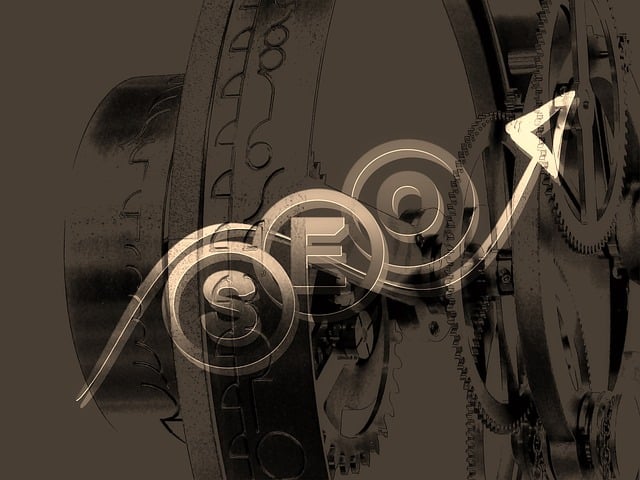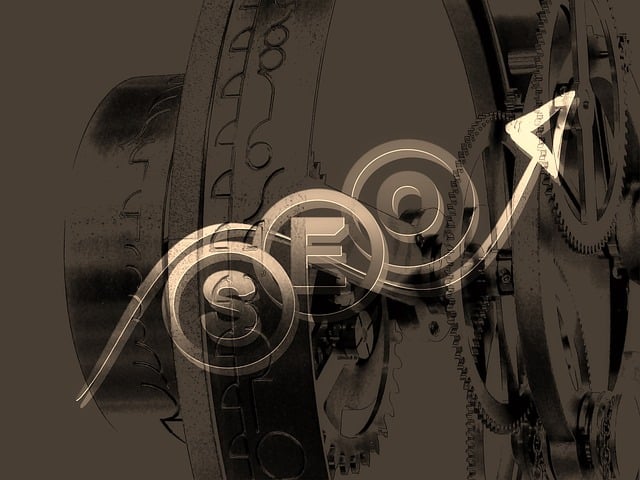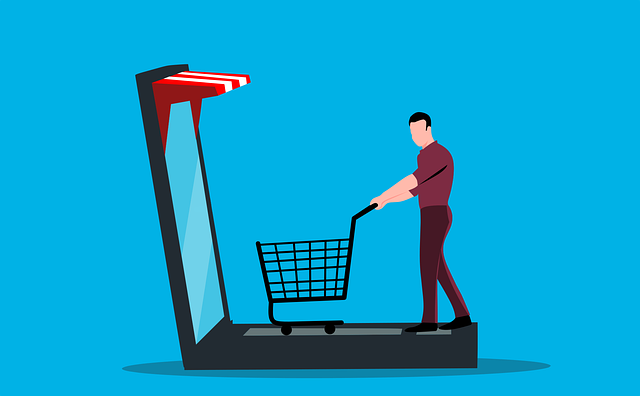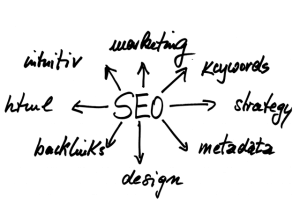Product listings are crucial digital assets for e-commerce success, attracting and converting customers through SEO optimization. An SEO agency specializing in e-commerce leverages keyword research, strategic content creation (including Title Tags, Meta Descriptions, and detailed product descriptions), structured data, and external linking to boost visibility and user experience. Competitive analysis tools help gain insights into competitor strategies, while KPI tracking ensures SEO efforts are effective and optimized for better search rankings, higher click-through rates, reduced bounce rates, and ultimately, increased conversions and revenue.
In today’s digital era, effective SEO strategies are paramount for e-commerce success. Product listings, acting as virtual storefronts, must stand out in a crowded online marketplace. This article guides you through optimizing your product listings for maximum visibility using proven SEO techniques. From keyword research and compelling content to structured data and external linking, learn how an SEO agency can transform your e-commerce website into a powerhouse that drives sales and exceeds customer expectations.
Understanding Product Listings and Their Role in E-commerce

Product listings are the backbone of any e-commerce website, serving as digital shop windows that display products to potential customers. They are a critical aspect of online retail, as they provide essential information about products, including descriptions, prices, and images, all of which influence buyer decisions. In today’s competitive digital landscape, an SEO agency for e-commerce websites understands the importance of optimizing these listings to ensure maximum visibility and conversion rates.
Effective product listings not only enhance user experience but also play a pivotal role in search engine optimization (SEO). By incorporating relevant keywords, compelling meta descriptions, and structured data, e-commerce sites can improve their search rankings. This, in turn, drives organic traffic and increases the likelihood of potential customers discovering and purchasing products, ultimately boosting sales and revenue for online businesses.
The Impact of SEO on Boosting Product Visibility

In today’s digital landscape, where countless products compete for online attention, an SEO agency for e-commerce websites plays a pivotal role in enhancing product visibility. Search Engine Optimization (SEO) is no longer just about ranking higher on search engine results pages; it’s about ensuring your products are discovered by the right audience at the right time. By implementing effective SEO strategies, e-commerce businesses can boost their online presence and attract potential customers who actively seek out their offerings.
When it comes to product listings, SEO acts as a powerful tool to cut through the noise. Well-optimized product descriptions, targeted keywords, and strategic meta tags not only improve search engine rankings but also provide users with a seamless shopping experience. This, in turn, increases click-through rates, reduces bounce rates, and drives more conversions. An SEO agency specializing in e-commerce understands these nuances and tailors their approach to meet the unique needs of each client, ultimately helping businesses stay competitive and thrive in the ever-evolving online marketplace.
Keyword Research: Unlocking the Potential for Product Discoverability

Keyword research is a cornerstone of any successful SEO strategy, especially for e-commerce websites aiming to boost product discoverability. An SEO agency specializing in e-commerce understands this crucial step involves delving into market trends and customer behavior to identify relevant keywords that potential buyers might use when searching for products like yours. By uncovering these terms, businesses can optimize their product listings, ensuring they appear in search results for the right audience.
This process isn’t just about finding popular keywords; it’s about unearthing long-tail keywords too. These are more specific phrases that may have lower search volumes but often indicate a stronger intent from users. For instance, instead of targeting “shoes,” an SEO agency might suggest optimizing for “best running shoes for women with wide feet.” Such targeted keywords can lead to higher conversion rates as they accurately reflect what customers are looking for.
Optimizing Title Tags and Meta Descriptions for Maximum Effect

When it comes to optimizing product listings, Title Tags and Meta Descriptions are two powerful tools that an SEO agency for e-commerce websites should focus on. These elements are crucial for capturing the attention of search engines and potential customers alike. A well-crafted Title Tag should include relevant keywords, be concise, and accurately represent the product, encouraging users to click through. For instance, instead of “Shop Now,” consider incorporating specific product attributes like “Buy Blue Sneakers – Comfortable & Stylish.”
Meta Descriptions provide a brief overview of the page content, aiming to entice users while also assisting search engines in understanding the context. While not directly influential in ranking factors, compelling Meta Descriptions can boost click-through rates, thereby indirectly impacting SEO. For an e-commerce platform, descriptive and keyword-rich Meta Descriptions that highlight unique selling points can significantly improve user engagement. An effective strategy is to incorporate long-tail keywords naturally, ensuring the description reads smoothly and provides genuine value to potential buyers.
Leveraging High-Quality Product Content to Enhance Search Rankings

High-quality product content is a cornerstone in any SEO strategy, especially for e-commerce websites managed by an SEO agency. Creating detailed, accurate, and engaging product descriptions significantly improves search rankings. By incorporating relevant keywords naturally, businesses can help search engines understand their products better, leading to higher visibility on result pages. Well-crafted content not only attracts potential customers but also encourages them to spend more time on the page, reducing bounce rates and increasing engagement metrics, all of which are favoured by algorithms.
Additionally, high-quality product listings often lead to improved user experience, as they provide clear information about features, benefits, and specifications. This enhances the likelihood of users clicking through from search results to the product page, driving more traffic and potentially leading to higher conversion rates. An SEO agency for e-commerce websites should thus focus on optimising content to deliver both exceptional readability and robust search engine performance.
The Power of Structured Data in E-commerce Listings

Structured data is a game-changer for e-commerce listings, providing powerful insights that help search engines understand products better. It’s like adding a detailed map to your product pages, ensuring they’re not just seen but also thoroughly indexed. By implementing structured data, an SEO agency for e-commerce websites can significantly enhance visibility and click-through rates. Search engines use this structured information to display rich snippets in search results, making your products stand out among competitors with simple text listings.
This strategic approach goes beyond basic keywords, delving into essential product attributes like price, availability, ratings, and even specific features. By marking up data using schema.org vocabulary, you create a harmonious relationship between your website and search engine algorithms. This, in turn, fosters trust and encourages users to engage with your listings, ultimately driving sales and improving the overall user experience.
Building External Links to Strengthen Your Product Pages

Building external links is a powerful strategy for an SEO agency specializing in e-commerce websites to enhance product listings. These backlinks act as digital votes of confidence, signaling to search engines that your products are valuable resources. When relevant and high-quality websites link to your product pages, it improves your site’s authority and visibility in search results. This is especially crucial in a competitive market where standing out is essential.
By attracting external links, you create a network that drives organic traffic to your product listings. This not only increases brand awareness but also provides an opportunity to engage with potential customers. Remember, the quality of these links matters; targets sites with authority and relevance to your niche to reap maximum SEO benefits.
Analyzing Competitors' Strategies for SEO Success

When it comes to optimizing product listings for search engines, understanding what works for competitors can be invaluable. A top-performing SEO agency for e-commerce websites often starts by analyzing the strategies employed by industry leaders and direct rivals. By dissecting their on-page and off-page optimization tactics, they uncover insights into keyword targeting, content creation, backlink profiles, and user experience enhancements. This competitive analysis provides a roadmap for improving product listing rankings.
Through tools like Google Search Console, SEMrush, or Ahrefs, an SEO agency can identify high-performing keywords, track competitors’ ranking movements, and uncover gaps in the market. For instance, they might notice that a competitor is successfully targeting long-tail keywords related to specific product attributes, which could be an untapped opportunity for other retailers. By adopting similar strategies tailored to individual business needs, e-commerce websites can elevate their SEO efforts and gain a competitive edge.
Measuring and Refining Your SEO Efforts for Continuous Improvement

Measuring your SEO efforts is a vital step in optimizing product listings and improving overall website visibility. As an e-commerce business, tracking key performance indicators (KPIs) allows you to understand what’s working and where there’s room for enhancement. One of the primary metrics to focus on is organic traffic; analyze how many visitors are finding your products through search engines over time. This data reveals the effectiveness of your SEO strategies, helping you identify high-performing keywords and pages that attract consistent traffic.
A reputable SEO agency specializing in e-commerce can guide you through this process, offering valuable insights and recommendations. They might suggest A/B testing different content approaches or refining meta tags to boost search rankings. Continuous improvement is key; regularly review analytics reports to stay updated on trends, user behavior, and algorithm changes. This proactive approach ensures your product listings remain optimized, increasing the chances of appearing at the top of search results for relevant keywords, thereby driving more qualified traffic to your e-commerce website.
